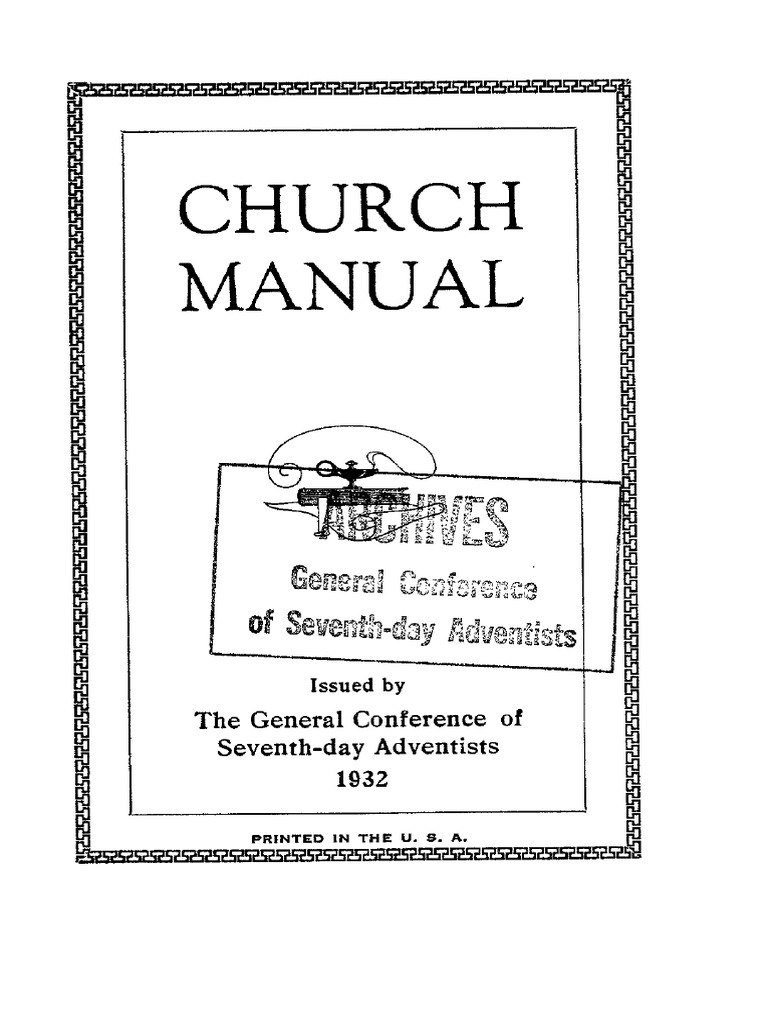The Seventh-Day Adventist Church, often abbreviated as SDA, is a Protestant Christian denomination that emerged in the mid-19th century. Known for its emphasis on the Sabbath and holistic lifestyle, the church’s doctrines reflect a unique blend of traditional Christian beliefs and distinctive teachings that sculpt the identity and faith of its adherents. This article explores the theological tenets of the SDA Church, delineating its distinctive beliefs and how they manifest in the lives of its members.
Foundational Beliefs
At the core of Seventh-Day Adventist theology is a firm belief in the Holy Scriptures as the inspired word of God. The Bible serves as the sole authority in matters of faith and practice. Adventists, however, hold a particular reverence for the prophetic writings of Ellen G. White, a co-founder of the church, who they believe received divine inspiration. Her writings are considered an extension of biblical teachings and serve as a guide for Christian living.
The Nature of God
Seventh-Day Adventists adhere to the doctrine of the Trinity, which emphasizes the co-existence and co-equality of God the Father, Jesus Christ the Son, and the Holy Spirit. This understanding underscores the relationship between the divine entities and illustrates the belief that salvation is a gift from God, accessible through faith in Jesus Christ. The church teaches that Jesus’ atoning sacrifice on the cross provides the foundation for reconciliation between humanity and God.
The church also emphasizes the character of God as loving and just, demonstrating mercy while maintaining a commitment to righteousness. This duality shapes the way Adventists view sin and the necessity for repentance.
Sabbath Observance
Arguably, the most distinguishing feature of Seventh-Day Adventism is the observance of the Sabbath on the seventh day of the week, Saturday. This practice is rooted in the Fourth Commandment and underscores the belief in a literal Creation week, as recorded in Genesis. Adventists view the Sabbath not merely as a day of rest but as a sacred time for spiritual rejuvenation and communion with God. It fosters a holistic approach to life, providing a designated period for worship, family, and rest from secular responsibilities.
During this divine opportunity, members engage in various activities, including attending church services, partaking in communal meals, and engaging in spiritual enrichment. This observance embodies the church’s commitment to living a life that honors God’s commandments and reflects a counter-cultural stance in a predominantly secular society.
Health and Wellness
Another integral aspect of SDA belief is adherence to a healthful lifestyle, often denoted as the ‘Health Message.’ Rooted in both Scripture and the writings of Ellen G. White, the church advocates a vegetarian diet, abstaining from alcohol, tobacco, and illicit drugs. This lifestyle is viewed as a manifestation of spiritual commitment and stewardship over one’s body, which is regarded as a temple of the Holy Spirit.
The SDA Church runs numerous health institutions and initiatives, promoting preventive health care and holistic wellness as pathways to physical and spiritual vitality. This focus on health often extends to community outreach, mirroring Christ’s healing ministry.
Second Coming and Eschatology
The anticipation of the Second Coming of Christ is a pivotal element of Seventh-Day Adventist eschatology. Adventists believe that Jesus’ imminent return will usher in divine judgment and the ultimate restoration of creation. This belief is not abstract; it energizes the church’s mission and mobilizes its members to evangelize, spreading the gospel message in preparation for Christ’s return.
Moreover, Adventists understand the investigative judgment—a unique doctrine concerning the heavenly judgment that commenced in 1844—as part of this prophetic framework. Members are thus motivated to live righteously and remain faithful in their commitment to God in anticipation of the fulfillment of His promises.
Mission and Evangelism
As a global denomination, the SDA Church embodies a robust missionary zealousness, guided by the Great Commission. Members engage actively in public evangelism, health outreach, and educational initiatives to disseminate the church’s teaching and support communities. The church operates various organizations dedicated to humanitarian efforts, emphasizing its commitment to social justice and compassion akin to the teachings of Christ.
This missionary spirit is intrinsic to the identity of the church, inspiring a global network of congregations dedicated to spreading the message of hope and redemption found in Jesus. Through literature ministries, media outlets, and community engagement, Seventh-Day Adventists seek to reflect the love of God in action.
Conclusion
The beliefs of the Seventh-Day Adventist Church contribute to a rich tapestry of faith, interweaving Scripture, prophetic guidance, and a holistic approach to health and lifestyle. By observing the Sabbath, practicing healthful living, and engaging in rigorous evangelism, Adventists carve a niche within the broader Christian tradition while remaining firmly rooted in biblical doctrine. The church’s anticipation of Christ’s imminent return instills hope and motivates its members to lead lives reflective of their faith, characterized by love, joy, and a commitment to service.
Thus, exploring the beliefs of the Seventh-Day Adventist Church reveals profound insights into a faith community deeply committed to living out the gospel in every aspect of life while remaining steadfast in the anticipation of God’s ultimate fulfillment of promise.



